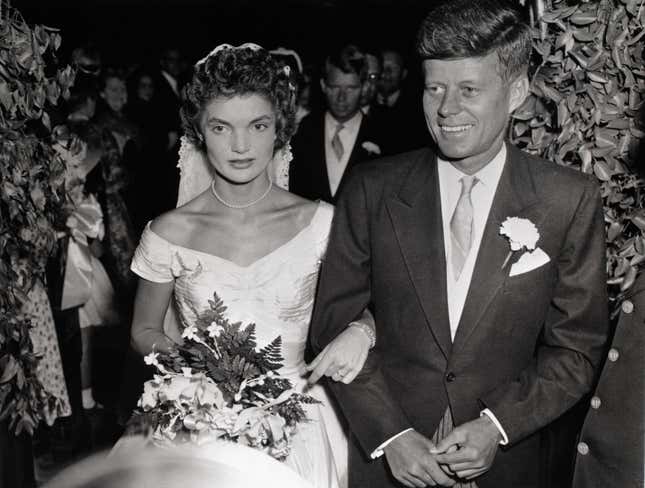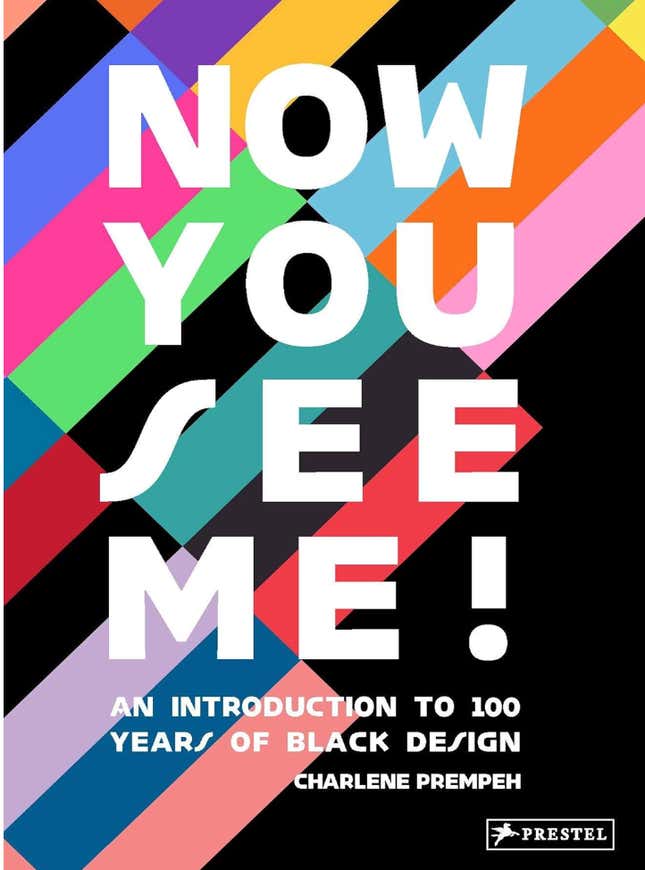
When Jaqueline Bouvier married then-Senator John F. Kennedy in 1953, it was her dress that stole the show. The silk taffeta gown with floral embellishments was featured on the cover of The New York Times and established the soon-to-be First Lady as a style icon. But unlike most celebrity brides, the designer, Black dressmaker Ann Lowe, didn’t get nearly as much attention as the dress. If you had no idea, you’re not alone. Charlene Prempeh, writer, editor and founder of A Vibe Called Tech, a London-based creative agency, didn’t either.
“I couldn’t believe I had never heard of her,” Prempeh told British Vogue. “I mean, how is it that one of the world’s biggest fashion icons had a Black designer creating so many of her clothes, and no one knew about her? It’s like she’s been completely erased.”
But Prempeh hopes her new book, “Now You See Me, An Introduction To 100 Years of Black Design,” will make sure more people know about Lowe and other Black artists. The book, which is set to hit shelves in February 2024, celebrates Black creatives like Lowe, who have been largely overlooked throughout history, including fashion designer Zelda Wynn Valdes, credited with designing the original Playboy bunny costume and Jackie Ormes, the first Black female cartoonist.

Ann Lowe’s client list was like a who’s who of wealthy families, including the Rockefellers and Roosevelts. And her designs were featured in high-end retailers, including Neiman Marcus, Henri Bendel and Saks Fifth Avenue. But the talented dressmaker who learned from her mother and grandmother (who was a slave), never received her flowers. When asked in an interview who she was wearing at her wedding, Jackie Kennedy simply said, “a colored woman dressmaker.”
Lowe shared her disappointment in a 1961 letter to Kennedy, writing:
“I realize it was not intentional on your part. But as you once asked me not to release any publicity without your approval, I assume that the article in question, and others, was passed by you. You know I have never sought publicity, but I would prefer to be referred to as a ‘noted negro designer’ which in every sense I am… Any reference to the contrary hurts me more deeply than I can perhaps make you realize.”
Prempeh hopes her book will encourage people to learn more about Lowe and other amazing yet often-forgotten artists.
“I want to ignite conversation again and create for others, perhaps in a small way, the moment I had when I first heard about Ann Lowe,” she said.



